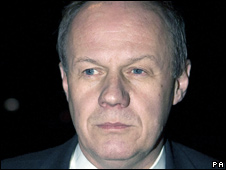My most recent article for the ExBerliner magazine:
What is exile? Other than a term much used and abused by many new expats arriving in Berlin, dictionary definitions point towards someone who is kept away from their home country for political reasons, either by regal decree in the past or now more probably self-imposed. But there are many other ways to feel exiled – from mainstream society, from your family, faith, profession, politics, and Berlin is now regarded as a haven.
However, let’s focus on the classic definition and a noble tradition. Every country, no matter how apparently enlightened, can become a tyrant to its own citizens if they challenge abuses of power. Voltaire was exiled in England for three years and soon after Tom Paine, a former excise man facing charges for seditious libel, sought refuge in France. More recent famous exiles include David Shayler, the MI5 whistleblower of the 1990s who followed in Paine’s footsteps pretty much for the same fundamental reasons, yet Alexander Litvinenko, the KBG whistleblower of the same era, ironically found safe haven in exile in the UK.
So, being an exile effectively means that you have angered the power structures of your home country to such an extent that other countries feel compelled to give you refuge, partly for legal or principled reasons, but also for political expediency. The current most famous exile in the world is, of course, Edward Snowden, stranded by chance in Russia en route to political asylum in Ecuador.
What does the act of fleeing into exile actually feel like? It is a wild leap into an unknown and precarious future, with great risk and few foreseeable rewards. At the same time, as you leave the shores of the persecuting country, evading the authorities, avoiding arrest and going on the run, there is an exhilarating, intense feeling of freedom – a sense that the die has very much been cast. Your old way of life is irrevocably at an end and the future is a blank slate on which you can write anything.
After Shayler and I fled to France in 1997, for the first year of the three we lived in exile we hid in a remote French farmhouse just north of Limoges – the nearest village was 2 kilometres away, and the nearest town a distant thirty. We lived in constant dread of that knock on the door and the ensuing arrest. And that, indeed, eventually did catch up with him.
As a result, for Shayler it meant the world grew increasingly small, increasingly confined. Initially, when we went on the run, we were free to roam across Europe – anywhere but the UK. Then, after the French courts refused to extradite him to Britain in 1998 to face trial for a breach of the draconian UK Official Secrets Act, France became the only place he could live freely. If he had then traveled to any other European country, the British would have again attempted to extradite him, probably successfully, so he was trapped.
However, there are worse places than France in which to find yourself stranded. As well as being one of the most beautiful and varied countries in the world it felt particularly poignant to end up exiled in Paris for a further two years.
It was also conveniently close to the UK, so friends, family, supporters and journalists could visit us regularly and bring Shayler supplies of such vital British staples as bacon and HP source. But he still missed the simple pleasures in life, such as being free to watch his beloved football team, or being able to watch the crappy late night comedy shows that the British endlessly churn out. Despite these small lacks, I shall always remember those years in France fondly, as a place of greater safety, a literal haven from persecution.
Of course, all this was in the era before the standardised European Arrest warrant, when national sovereignty and national laws actually counted for something. Finding a secure place of exile now would be almost an impossibility in Europe if you home country really wanted to prosecute you.
Many Western expats now talk of being “exiled in Berlin”, and they may indeed be self-exiled in search of a more sympatico life style, a buzzy group of like-minded peers, work opportunities or whatever. But until they have felt the full force of an extradition warrant, before the fuzz has actually felt their collars, this is realistically exile as a lifestyle choice, rather than exile as a desperate political necessity or, in Edward Snowden’s case, a potentially existential requirement.

 The
The 





